Peanut butter is high in essential nutrients, including proteins, minerals, healthy fats, and vitamins, making it one of the best foods for preppers. Plus, it’s possibly one of the most delicious snacks out there. You’d definitely want to have a jar in your bag when you find yourself in a really difficult situation.
But how long does peanut butter last?
In this article, you’ll learn everything you need to know about storing peanut butter.
Why Do You Need to Stock Up On Peanut Butter?
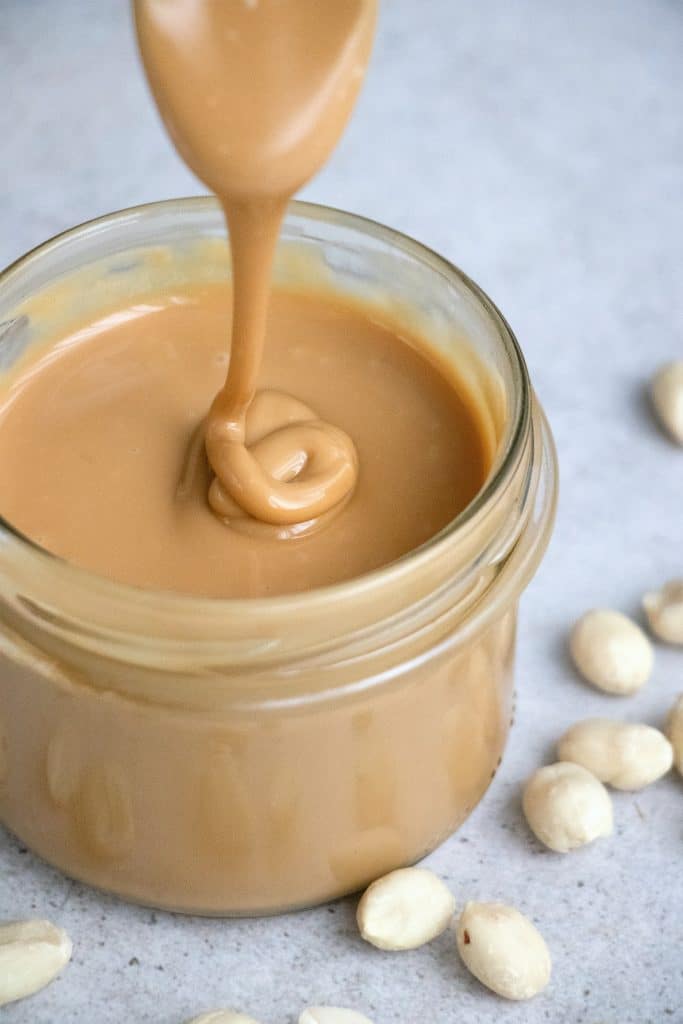
Here are a few compelling reasons to store peanut butter in your pantry.
1. Peanut butter is an excellent addition to any survival kit when it comes to convenience. Just open the package and consume.
2. It has a very long shelf life, even after opening. Its lifespan is due to its low moisture content, high oil content, and high quantities of Vitamin E.
3. Peanut butter is beneficial to your health. It is high in nutrients and healthy fats. And when consumed in moderation, it may help you lose weight. Though be sure to keep a watch on your sodium and sugar levels.
4. It is a high-calorie snack that gives you a lot of energy, vital for emergencies.
5. It is a must-have ingredient in various sweet and savory cuisines.
6. It is one of those meals that stick to your ribs. Fiber and protein increase satiety and make you feel fuller for longer.
7. Peanut butter has been shown to help with mental wellness. Really. It is due to the chemical makeup of the substance.
8. Peanut butter makes a great sandwich spread. It goes well with jelly, jam, bananas, apples, honey, and just about anything else!
9. A range of product sizes is available, ranging from single packets to family-sized buckets. Each has a place in your cupboard of food storage.
10. Peanut butter is high in folate, an essential vitamin for pregnant women.
The Shelf Life of Peanut Butter
| (Unopened) | Pantry | Refrigerator |
| Past Printed Date | Past Printed Date | |
| Natural Peanut Butter | 2-3 Months | 3-6 Months |
| Smooth Peanut Butter | 1 Year | 1 Year |
| Crunchy Peanut Butter | 1 Year | 1 Year |
| (Opened) | Pantry | Refrigerator |
| Natural Peanut Butter | — | 5-6 Months |
| Smooth Peanut Butter | 3-4 Months | 6-8 Months |
| Crunchy Peanut Butter | 3-4 Months | 6-8 Months |
| Homemade Peanut Butter | — | 3-6 Months |
Has Your Peanut Butter Gone Bad?
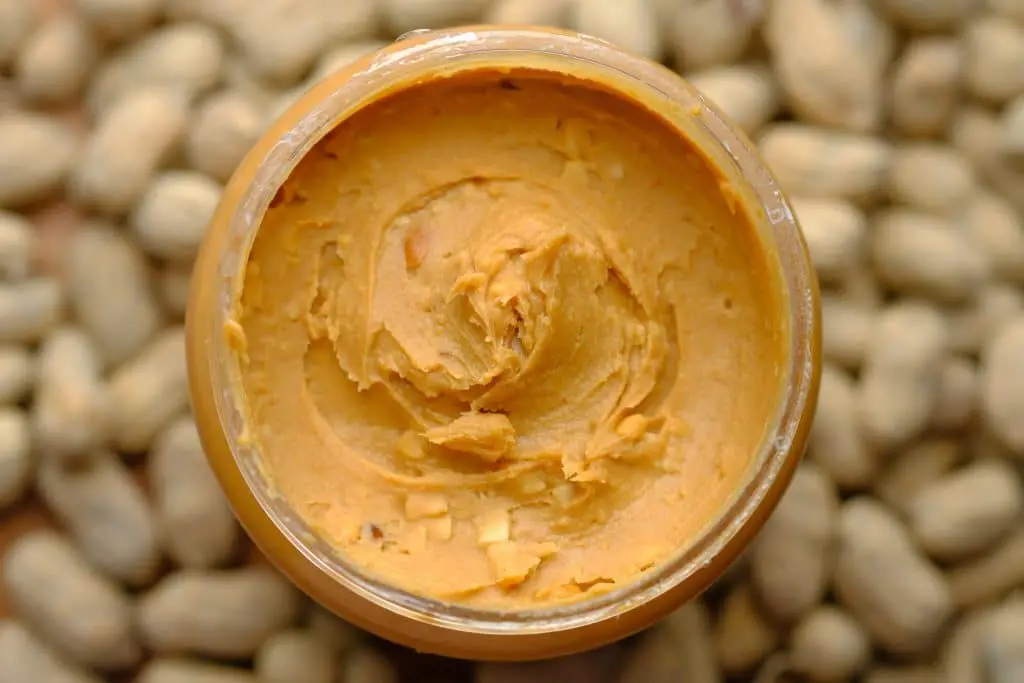
Expiration dates, often known as best-by dates, are written on the container of most packaged peanut butter and indicate how long the product will keep fresh.
On the other hand, these labels are not required and do not guarantee safety. That implies your peanut butter may be OK to consume beyond the expiration date.
To be sure, here are some of the things you need to check to make sure that your peanut butter hasn’t gone bad.
Color. Peanut butter that has turned bad may have changed color and become darker.
Smell. Oxidation will cause peanut butter to develop a foul odor. If your peanut butter smells like anything other than peanuts, throw it out.
Taste. As with the odor, bad peanut butter will be detectable with a tiny taste test. If you pick up any unpleasant or strange flavors, we recommend throwing them in the trash.
Rancid peanut butter may have a hard and dry feel, while fresh peanut butter is naturally smooth and creamy. In contrast to its regular light tan tone, it may sometimes seem dark brown.
Keep in mind that oil separation is natural in peanut butter due to the absence of stabilizers. It is not an indication that the peanut butter is spoiled.
It is harder to detect whether powdered peanut butter has gone rancid, but the scent, texture, and taste changes are substantial clues.
Of course, a change in scent is a typical symptom of rotting food. Peanut butter that has gone rancid may smell bitter or metallic.
How To Store Your Peanut Butter Long Term
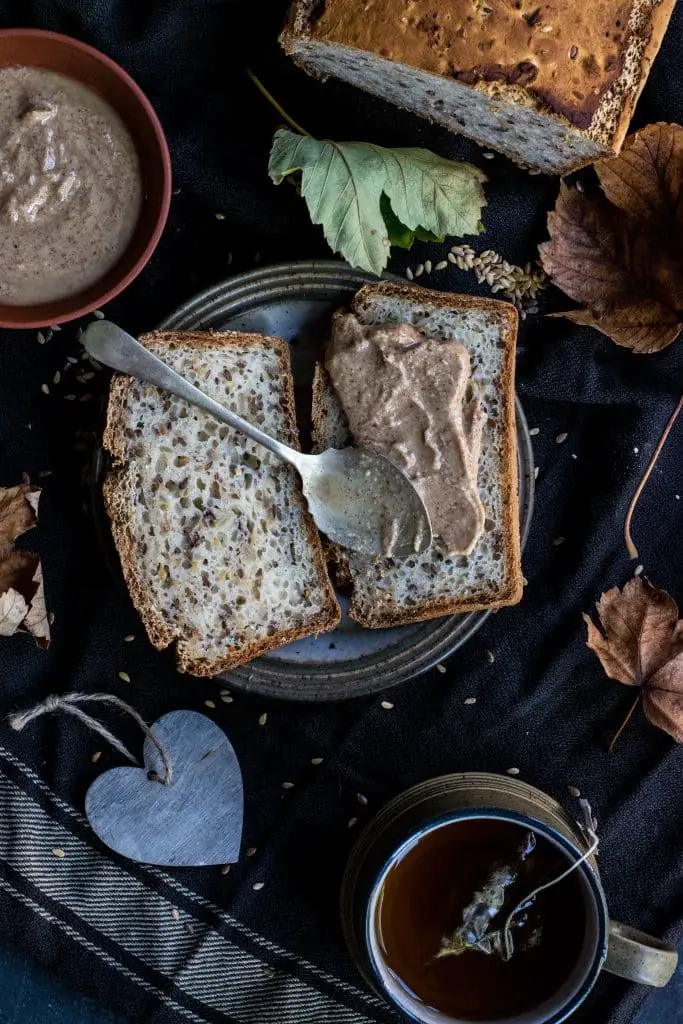
Regular peanut butter may be stored, albeit it will not stay as long as powdered butter.
It should last around two years if you follow these instructions:
1. Select the Correct Peanut Butter.
Some peanut butter varieties survive far longer than others. Choose peanut butter that meets the following criteria for long-term storage:
- Peanut butter with hydrogenated oil will last longer than peanut butter with palm oil or maize oil.
- Peanut butter with a high oleic content takes longer to oxidize.
- Although low-fat peanut butter oxidizes more slowly, research suggests that bacteria thrive in low-fat PNB.
- Chunky peanut butter oxidizes more slowly than smooth peanut butter.
As much as possible, avoid storing natural peanut butter.
Products labeled as natural peanut butter contain 90% peanuts and have a shorter shelf life. Some natural peanut butter may contain stabilizers to prevent oil separation. In general, natural peanut butter without stabilizers can last for several months in the pantry unopened or up to a month once opened.
The natural peanut butter will not stay long, regardless of how you keep it. Natural peanut butter becomes rancid after just one month in storage.
If you genuinely want to consume natural peanut butter, buying peanuts in bulk is a better option. They can endure up to five years if stored in Mylar bags with oxygen absorbers. During a power outage, you would need a hand-powered mill to grind them into PNB.
2. Keep it Cool
The temperature has the most significant effect on whether or not peanut butter becomes rancid. Even a slight temperature rise may hasten the oxidation of peanut butter. Keep the peanut butter in a cold area and avoid warming up to room temperature.
Although the stench may attract rats, a root cellar is viable.
Is it safe to freeze peanut butter? You may store peanut butter in the freezer to prevent it from becoming rancid. In the freezer, it might theoretically keep indefinitely. We still do not advocate freezing peanut butter, however. It would absorb odors from the freezer over time.
3. Use glass jars to store peanut butter.
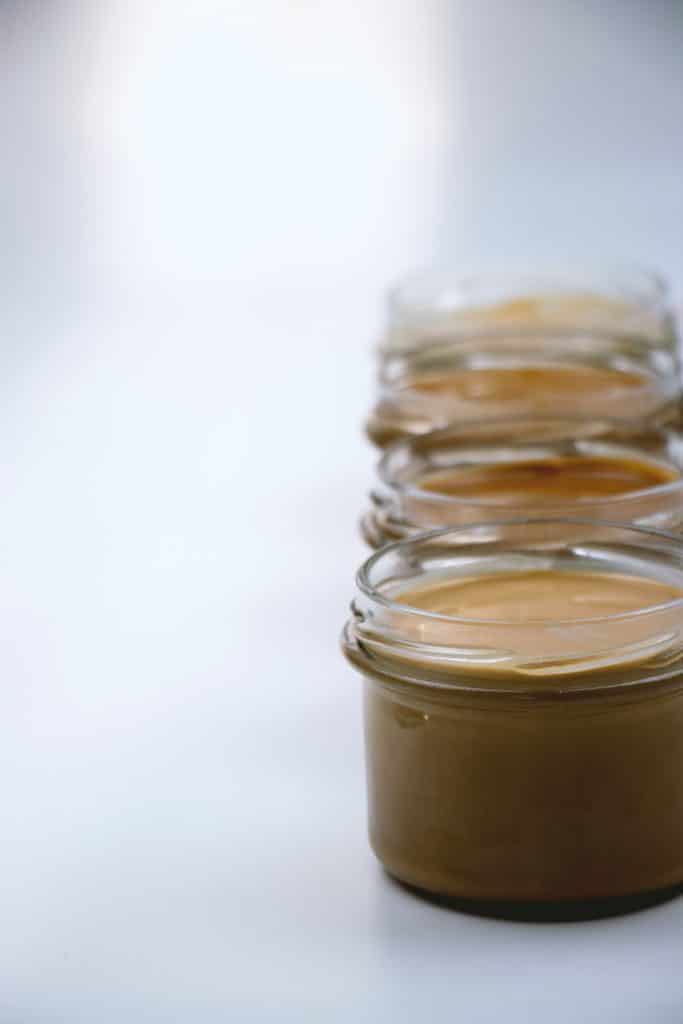
Glass jars are much superior to plastic ones when it comes to the long-term storage of peanut butter. Because they don’t let as much oxygen into your peanut butter, it lasts longer.
Containers made of plastic are not airtight. The material has microscopic pores that enable air and moisture to seep through. The moisture level of peanut butter in plastic containers will rise in humid conditions, allowing germs to proliferate.
If you must purchase peanut butter in a plastic container (it is less expensive than glass and won’t break), pick PET over PP. Another excellent alternative is peanut butter, which comes in metallic packets.
4. Avoid light.
UV radiation accelerates the oxidation process. Keep peanut butter in the dark spot to keep it fresh for longer. Alternatively, to cover the peanut butter containers from light, place them in paper bags.
5. Turn it inside out.
Even stabilized peanut butter will separate over time if left alone. On top of the PNB, you will have an oily layer. Mixing the oil back into the proteins might be a pain. Turning the peanut butter jar upside down is a simple remedy. It will still need stirring, but it will be less messy.
How Long Can You Survive on Peanut Butter Alone?
Peanut butter is a nutrient-dense food rich in fats, proteins, and carbohydrates. It is a terrific source of energy that may keep your body functioning for an extended period as a survival meal. It is a nutritious diet that supplies enough nutrition in the short term. However, this item is not a complete source of nourishment and, in the long run, should be included in a more balanced diet.
Twenty-one tablespoons of peanut butter contain 168 grams of fat. While a certain amount of fat is essential for a well-balanced diet, over-consumption of fat relates to various dangerous illnesses, including heart disease and some malignancies. Given this, it is clear that a diet based only on peanut butter is not optimal.
Is It Strange to Consume Peanut Butter by Itself?
Even while you shouldn’t use peanut butter as a primary source of nutrition, it is generally acceptable to have a tiny quantity of it now and then. But the biggest issue with peanut butter is that it is challenging to resist. It is unlikely to hurt you if you consume tiny quantities at a time.
While peanut butter has a lot of nutritious value, consuming just one food at a time is never a brilliant idea.
You could probably last a long time in a survival scenario. At the end of that period, you would be pretty sick. Because there are so many variables to consider, there is no clear answer to how long it will take.
For a prepper, peanut butter is an excellent short-term fix for acquiring the calories you need in a survival scenario.
About Powdered Peanut Butter
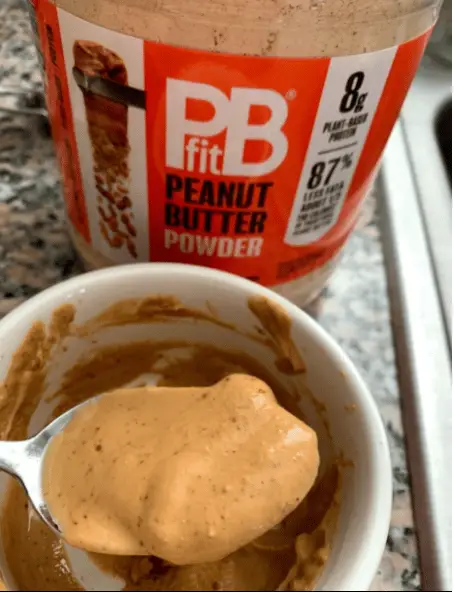
The best peanut butter for long-term storage is powdered peanut butter. It will not go rancid as quickly as ordinary peanut butter since it has nearly no fat.
Commercially packaged peanut butter has been churned and is unlikely to separate, reducing the risk of becoming rancid. These commercially prepared peanut butter have preservatives that help prolong their shelf life.
Powdered peanut butter comes from roasting the peanuts and pressing the nuts to remove most oil. Commercially, they use this procedure to generate peanut oil, with peanut butter powder as a byproduct. They crush the leftover particles into a fine powder after extracting the peanut’s oil and adding small sugar quantities to certain peanut butter powders for flavor.
Some peanut butter powders include flavorings like chocolate. Some include nutritional supplements such as chia seeds, probiotics, and protein powder in other kinds.
In recent years, powdered peanut butter has gained much traction in the fitness and nutrition worlds. It is pretty famous for a reason:
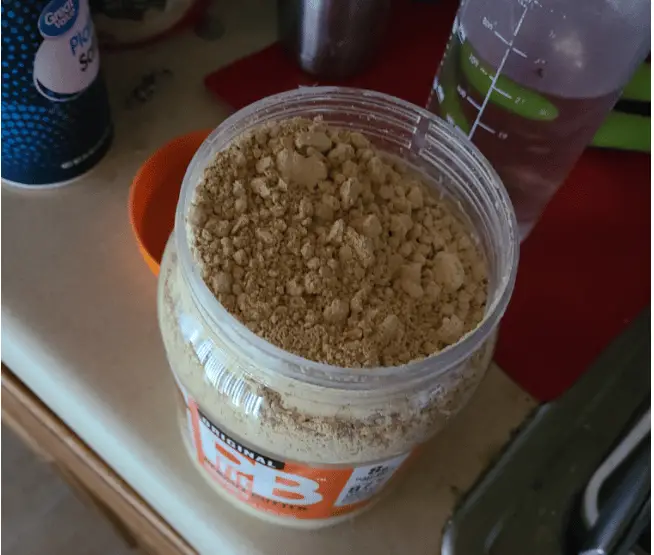
- Peanut butter powder is high in nutrients.
- It contains just a few potentially hazardous complex carbohydrates and saturated fats.
- It is also simple to store and has a long shelf life.
Those who like to do things on their own may produce their peanut butter powder. When making your peanut butter powder, you have greater control over the pressing process. You can preserve some of the beneficial lipids found in peanuts in the powder.
These lipids may boost the caloric content of peanut butter powder. The fats also make it simpler for the body to absorb the fat-soluble vitamins in peanuts.
Homemade peanut butter is wholesome and straightforward, lacking the preservatives of commercial brands. We recommend storing it in the fridge, where it should stay good for 1 to 3 months.
Making your peanut butter powder allows you to customize the sugar, salt, and other flavorings to your liking.

Have cocoa powder handy to add to peanutbutter. It has health benefits and takes care of chocolate craving. Raisins are a good companion to keep near/with peanutbutter. These have been great resources on month long roadtrip exploration & adventures, and on long hikes.
And peanutbutter is good to saute slugs after they’ve had 24 hours to purge on dandelion/plantain leaves or other non toxic foraged item. And rancid peanutbutter could be use as fuel, though uncertain burning rancid oils being harmful to environment, if absolutely necessary be sure to stay upwind of it.
Yup! I eat peanutbutter by the spoonful from the jar! There is always a fresh jar to be had for guests…
Would it help to stir powdered PB into honey for longer-term storage?